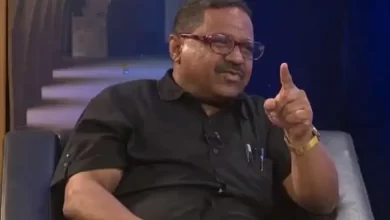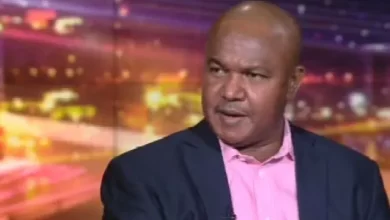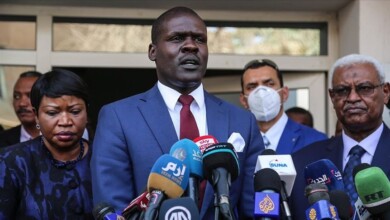Sudan: The world’s last hotbed of terrorism

Dr. Al-Waleed Adam Madibou
“Homeland is not the land, but rather the human being when he believes he deserves life and begins to free himself from the inherited lies.”
~Tayeb Salih
On old maps, Sudan loomed like a shadow on the edges of the desert, a country broken to its knees since the curse of history and geography descended upon it. Today, it seems that time is repeating itself: A country seeking salvation, but through the same tools of destruction. Here, the “Popular Resistance” stands as a camouflaged nom de guerre, however, it amounts to no more than being the renewed incarnation of the Islamic Movement, which has repackaged its jihadist rhetoric under the guise of defending Sovereignty and identity. At its core, it still dreams of empowerment and wages its battle under the shadow of the rifle and the chant of takbeer “Allahu Akbar – Allah is Great”
Ever since the Islamic Movement entered Khartoum aboard the Salvation (Inqaz) Army’s tanks in (1989), it has been well aware that its project wasn’t based on a social contract, but rather on an armed project embedded in absentia. It combined the mechanisms of a police State with the fantasia of global jihad, exporting its fighters from the south to Chechnya, and from Darfur to Mali. Even after its State was nominally dismantled in (2019), its networks didn’t evaporate. Rather, they regrouped and created a new front under the name “Popular Resistance.”
Let’s say it honestly: Sudan doesn’t need a resistance cloaked in religion, but rather a resistance of a different kind: resistance to corruption, resistance to tyranny, resistance to the lazy mind that reduces the Almighty to a pretext for murder and the homeland ti a platform for monopolization.
At this juncture, we ought to take a moment and ponder the question posed by the conscience: What drives some countries to support the Islamists in Sudan, in blatant defiance of the will of a nation that has sacrificed hundreds of thousands of martyrs, detainees, and wounded to free themselves from this corrupt system? Is it a profound belief in the project of a “transnational Brotherhood State”? Or is it merely an investment in the political chaos and strategic vacuum?
In Cairo, the paradox of history is evident: A country that overthrew the Muslim Brotherhood, yet embraces a military faction infused with the Islamists’ spirit. The men of Karti, Osama Abdullah, and Ahmed Haroun aren’t residing in distant caves to scheme, they’re fulfilling these duties from the corridors of a bureaucracy that still holds a firm grip on military decision-making in Sudan. Egypt, with its dual security spirit, is pressuring the Kingdom of Saudi Arabia through the lens of “institutional legitimacy,” conveying to Riyadh a false (and polished) image of a conservative Sudanese Army, when in reality, this Army is nothing more than a class and ethnic privilege protected by weapons, media propaganda, and gold.
As for Qatar and Türkiye, their support comes within the framework of their efforts to strengthen their influence in the region. Algeria preceded them on this path when it chose to coexist with the specter of an Islamist past instead of helping the Sudanese people forge a social contract that would restore its societal spirit. As for some countries that continue to support the Islamists, such as Iran, their motivation is neither security nor economics, but rather an ideological belief in the role of political Islam in shaping the map from the Atlantic to the Gulf, even at the expense of the people.
The region is at a crossroads. President Trump’s upcoming visit to the United Arab Emirates (UAE), Qatar, and Saudi Arabia could mark a new turning point, especially if Sudan is placed on the agenda. At a regional moment trembling between coups and normalization, the US Administration, led by President Trump, may find that the Sudanese issue can no longer be postponed, especially after it has become a potential gateway for Russian influence and a loose extension of the global Muslim Brotherhood project.
Nevertheless, will the United States accept this? The United States, which bombed the Houthis in Yemen and supported Israel in crushing the “resistance” in Syria, Lebanon, and Palestine, now views Sudan through the lens of its own shifting interests, not principles. If Sudan is included on its agenda, it won’t be out of a desire to ensure its safety, but rather out of fear of the presence of Russian bases along the coast, which extends over (850 kilometers) along the Red Sea.
In the heart of the African continent, Sudan stands at a historic crossroads, where domestic and foreign ambitions intersect, and where the threads of past and present intertwine. Since the popular revolution toppled Al-Bashir’s regime, the storms have yet to subside. Rather, faces and slogans have changed, while the fundamental structure of power has remained unchanged.
Despite all the above, one particular avenue remains on the horizon, deserving of attention: The generation of the revolution. This generation wasn’t deceived by the illusions of the past, nor drawn into the bargains of the present. A generation that knows that a nation cannot be run by bidding on the Almighty or trading in blood. It emerges from the rubble of destruction dreaming of a new Sudan, escaping the clutches of death and moving toward an international community that sees it as a friend, not a victim. A homeland that is neither used as a platform for terrorism nor held hostage by slogans that have been outdated by time.
In conclusion, the “Popular Resistance” in Sudan is merely a pseudonym for an old shadow, adept at disguising itself and changing its masks. The Islamic Movement that subjugated the people in the name of Allah is now returning through the cracks of the current era, disguised as “Popular Resistance,” attempting to gain new legitimacy from the ashes of a homeland that no longer possesses anything but its wounded memory.
In this exhausted country, myths never cease to exist; they reproduce themselves. From Khartoum to Port Sudan, from Atbara to Al-Jaili, the narrative of “global jihad” creeps in silently like a hungry wolf, utilizing a rhetoric familiar in its tone and new in its methods. Yet it remains trapped in the same old idea: monopolizing the truth, excluding others, and subjugating the homeland for a project that transcends humanity and history.
May 13th, 2025




